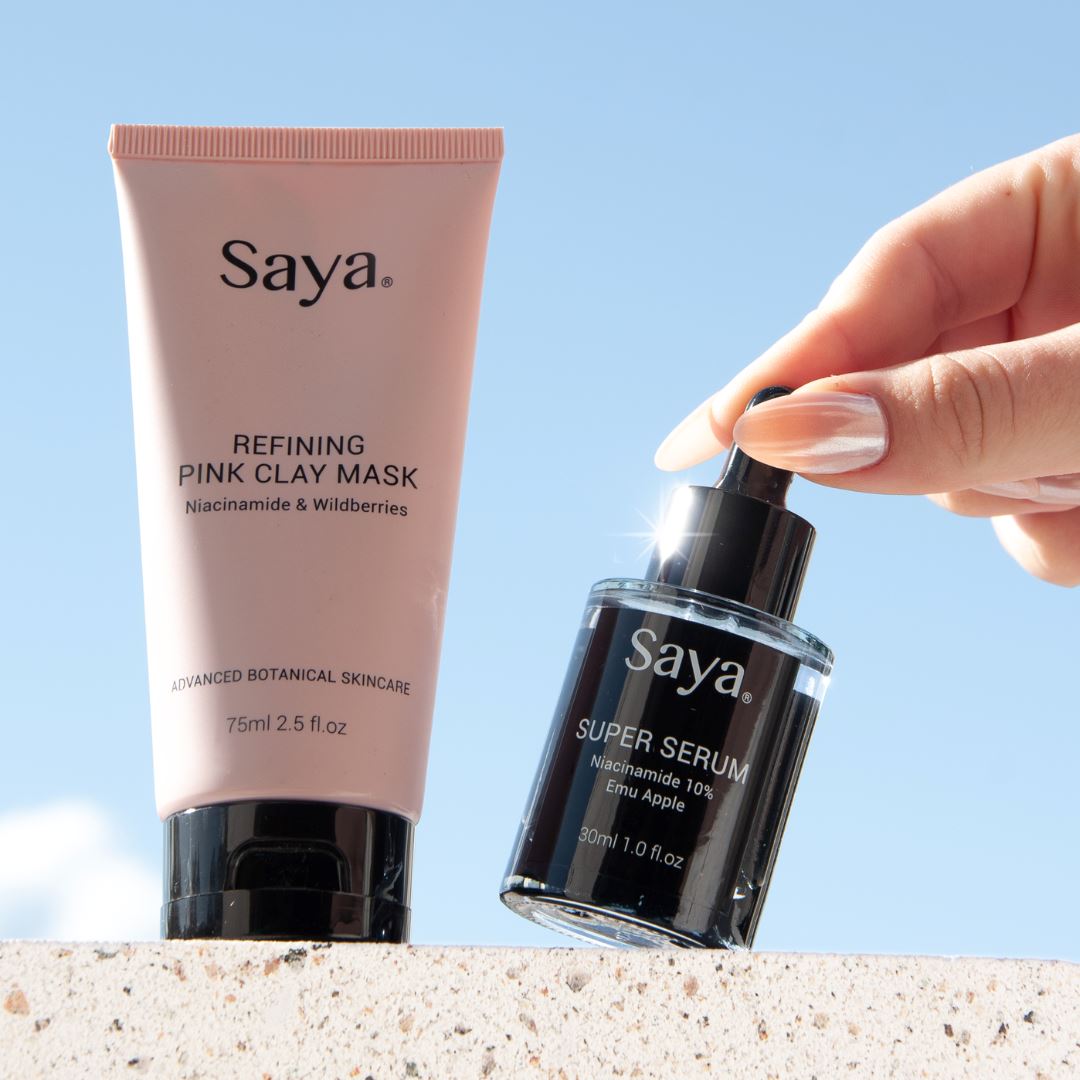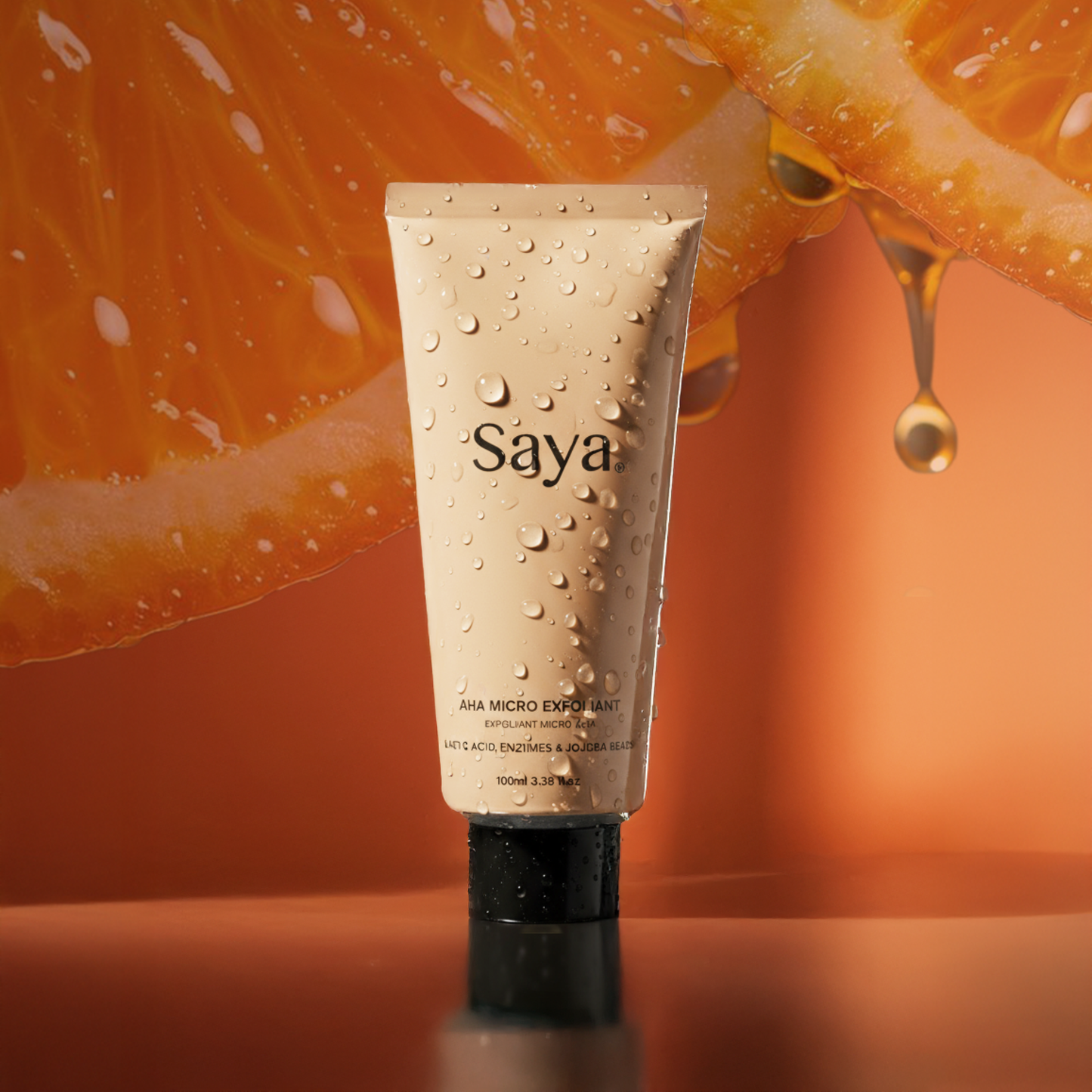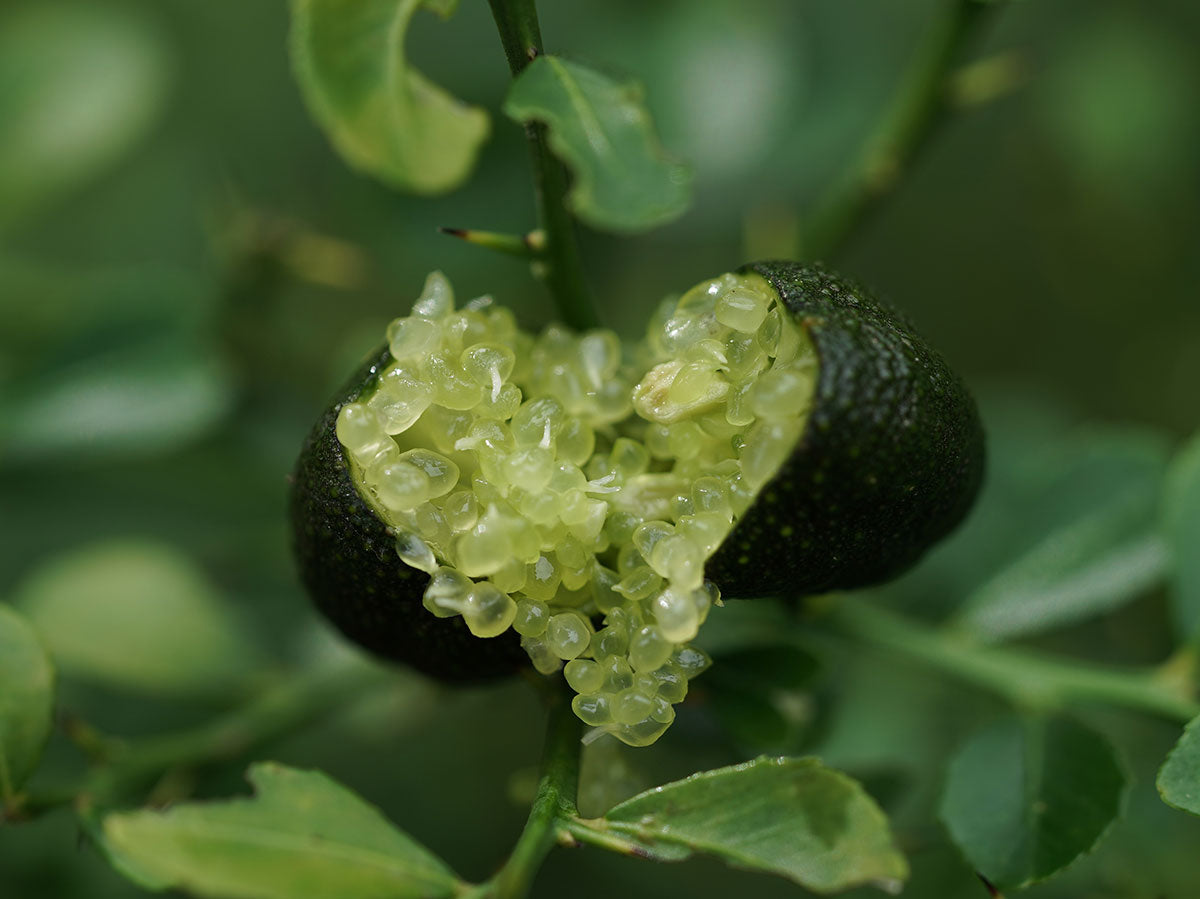
We've all been sold products that claim to instantly cure acne. Tired of it? - You're not alone. We’re not going to promise you perfect skin, but we can help you heal and support it. If your skin is feeling oily, congested and angry, here are the basics to supporting your skin through uneasy times and preventing future breakouts.
What causes breakouts?
Breakouts are due to too much sebum (oil) being produced by the skin. When oil gets trapped in the pores with dead skin cells, this causes infection by bacteria and creates havoc.
Controlling hormonal acne
Hormonal acne, breakouts and acne flare-ups aren’t always something that we can control. But we can reduce the appearance of redness and imperfections. By incorporating certain ingredients and habits within your skincare routine, we can support their severity and frequency of them.

Acne-prone Skincare Routine Must-haves
Sometimes acne-prone skin “solutions” can feel endless and overwhelming but caring for your skin doesn’t have to be. While there may be no one-size-fits-all regimen, building a foundational skincare routine to focuses on supporting, repairing and protecting the skin is a good place to start.
-
Remove bacteria: A regular cleanser will go a long way in keeping your complexion healthy. Double cleanse with an oil or balm as well as a gel cleanser to effectively remove any bacteria or excess oil that could lead to further breakouts.
-
Unclog pores: Using ingredients like AHA’s helps treat and prevent acne by clearing congestion. BHA’s on the other hand are oil-soluble acids and are great for getting into the deeper layers of your skin to clean out oil-clogged pores and reduce excess oil - where breakouts start. Try incorporating a gentle exfoliant 1-3 times a week. A hydrating clay mask is also a great way to absorb excel oil and can be used for spot treatment.
-
Implement active ingredients: Use powerful hydrating serums that are formulated with ingredients like Hyaluronic Acid and Pentavitin® to repair the skin’s barrier function. Niacinamide is also incredibly restorative as it helps to heal, brighten, calm & clarify. It helps to fade post-acne marks & regulates oil production which makes it a great choice for treating and healing spots. After applying serums, lock in moisture with a non-clogging gel cream.
-
Protect & prevent: Incorporate practices that contribute to overall skin health like using Bakuchiol (A alternative) in the evening and SPF & Vitamin C every day. This will help to reduce inflammation, improve acne-induced hyperpigmentation & speed up cellular turnover - ensuring the skin is functioning optimally.
Not sure in what order you should be layering your skincare? Learn more here.
Hands off!
Let's be clear: No matter how tempting it may be, you should never pick at or pop your pimples as it can result in permanent acne scarring. When dealing with more severe types of acne scarring (ice pick, rolling, boxcar, and hypertrophic), over-the-counter topical products may not provide you with relief. Additional to topicals, specialised treatments can help address acne-prone skin (RF micro-needling, peel treatments, laser), however, these methods can be quite costly and time-consuming - that’s why prevention of acne is key.
Be consistent
When it comes to caring for acne-prone skin, consistency and routine are key. Acne breakouts & scarring won’t heal overnight, so don’t give up too soon. Before deciding if products are helping, give at least 4-6 weeks to see an improvement in redness, inflammation & oil control and up to 12 weeks for scarring & hyperpigmentation. If products are causing irritation, don’t persist and stop using.
Sometimes acne can be related to other health conditions. If your skin is not responding appropriately to topical treatments, it might be time to make an appointment with a certified dermatologist. Looking for products that help treat and prevent breakouts? Try Saya's Acne Support Bundle, curated just for acne-prone skin.





